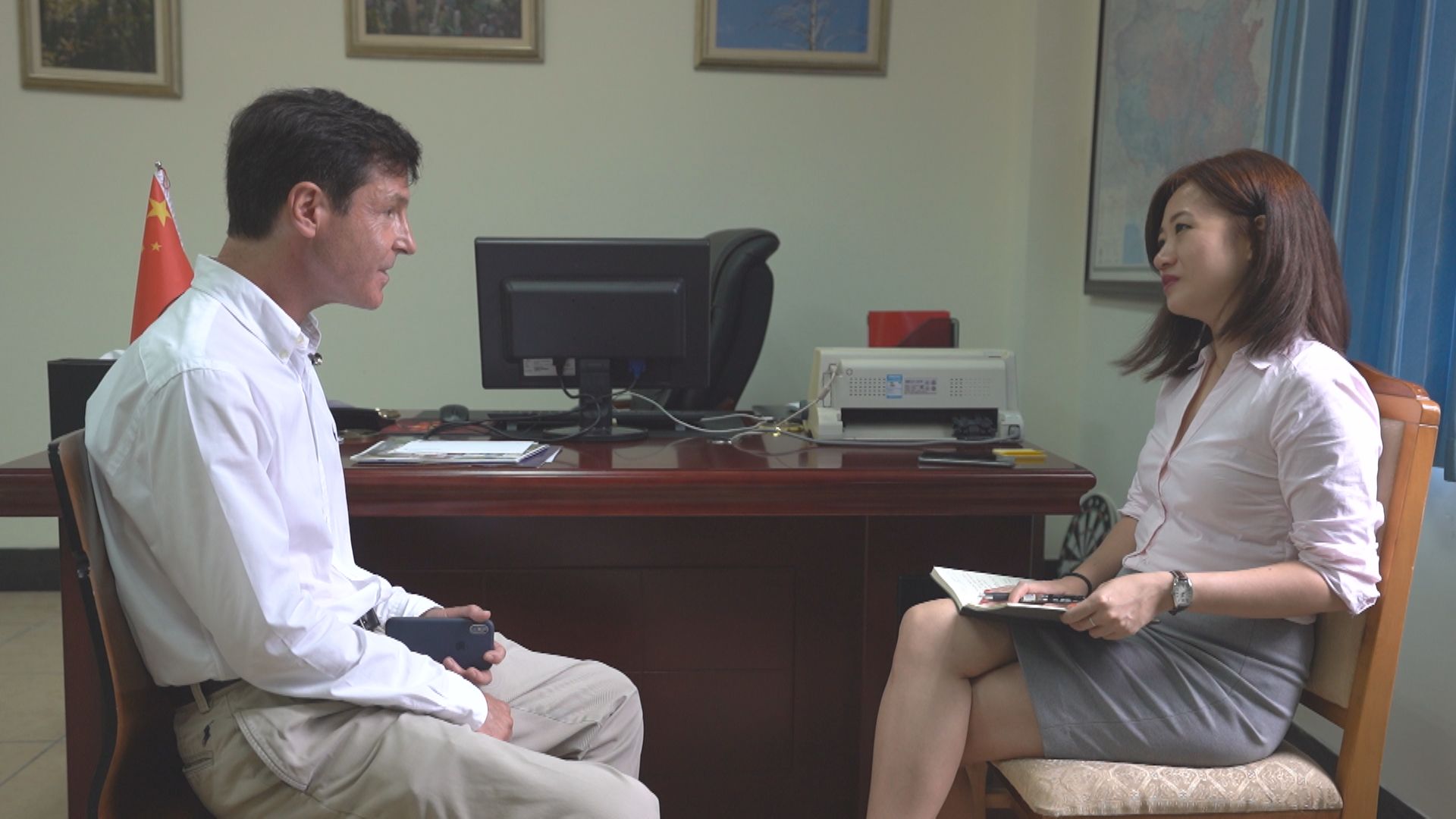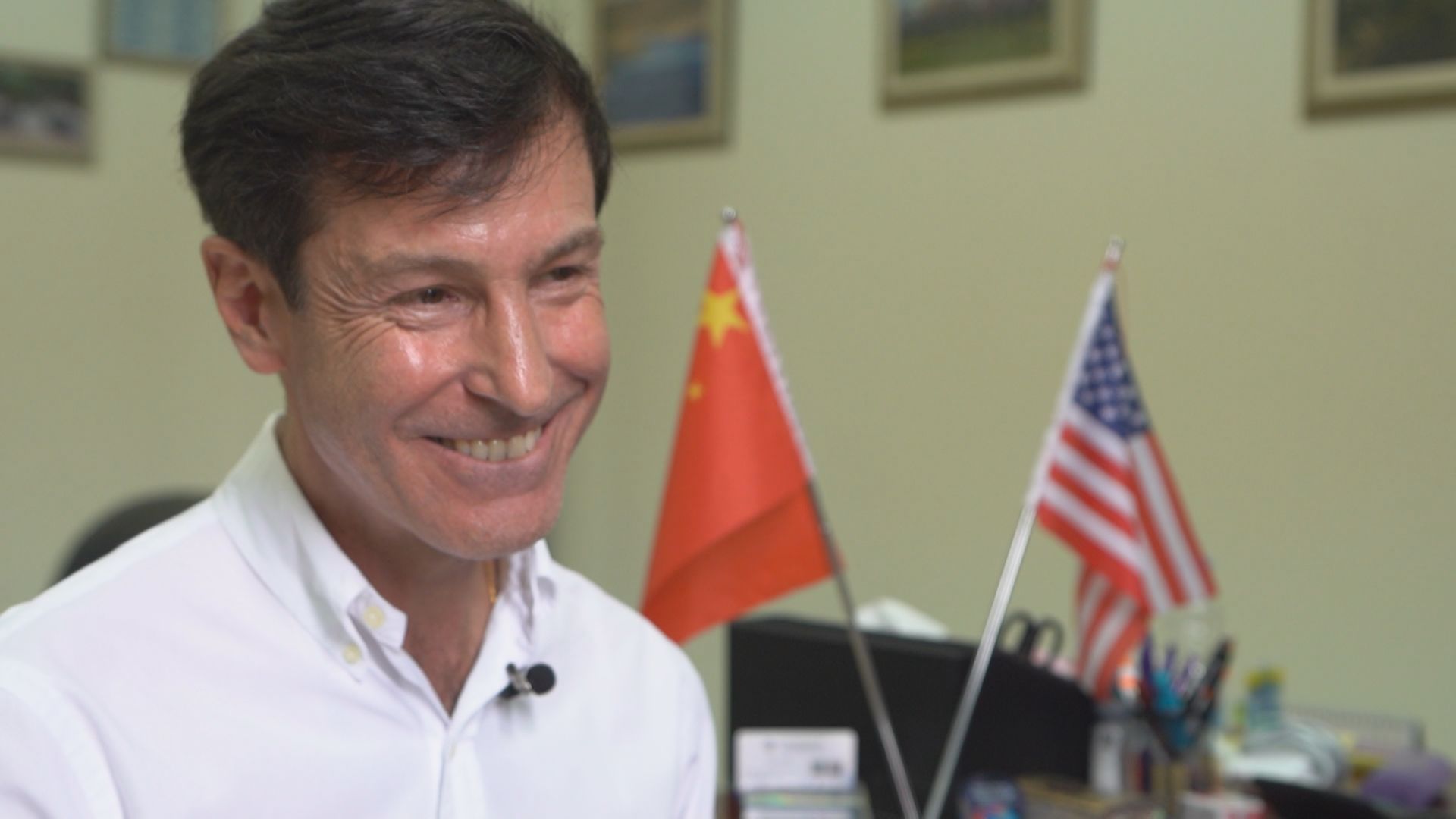03:35

Just as the COVID-19 pandemic takes center stage over students' worries to go abroad to study, the White House instituted a ban on Chinese students with military ties from entering the U.S., effective June 1, 2020.
According to a proclamation issued by Donald Trump, the suspension and limitation on entry applies to Chinese students in the F or J visa status in graduate-level programs and/or researchers who are associated with PRC entities that implement or support the PRC's "military-civil fusion strategy."
To this end, an American educationist who has spent over 20 years of his three decades experience in China responded that "anything stifles or lessens the exchange of ideas is detrimental."
"In the U.S., it loudly proclaims that it believes in individual expression, free exchange of ideas; and a ban like this does exactly the opposite," Dan Plaut, executive director of the Sino-American Elite Program at the Chengdu Meishi International School, told CGTN.
Plaut believes that using the existing intellectual property right laws in the U.S. would seem the logical way to go as opposed to a total ban.

Dan Plaut, executive director of the Sino-American Elite Program, believes anything that fosters transnational education is increasingly important. /CGTN
Dan Plaut, executive director of the Sino-American Elite Program, believes anything that fosters transnational education is increasingly important. /CGTN
Number of Chinese students in the U.S. still growing, although marginally
According to an Open Doors' Report on International Educational Exchange, there were 369,548 students from China in the U.S. in 2018/19. This marked a 1.7 percent increase from 2017/2018 – the lowest growth rate in 10 years.
Although, it's worth noting that the number of students from China to the U.S. has tripled from just 127,628 in 2009/10.
Plaut said traditionally, the SAEP – a three-year program which preps students in China to attend undergraduate degree programs overseas – sent about 90 percent of its graduates to the U.S.
"But starting two years ago, it began to shift towards Australia, the UK, Canada, specifically," he said, adding that "this year, only 20 percent of our graduates have chosen the United States."
Plaut said this was partially due to Trump's policies which aren't very welcome in China.
"But there's also the strong USD and a perception that the U.S. is not safe due to gun violence. I think it's been over-hyped by the U.S. media. But there is that perception," he explained.
"In addition, other countries have extended the welcome mat very overtly, so they have become more attractive while the U.S. has become less attractive, unfortunately."

Students at Chengdu Meishi International School are still keen to study in the U.S. /CGTN
Students at Chengdu Meishi International School are still keen to study in the U.S. /CGTN
Parents and students still keen on the U.S.
Asked of this latest ban, a father of an 11th grade student said he will keep tabs on the situation.
"If Trump further clamps down on undergraduate courses in the future, we will then choose other English-speaking countries. But since the impact now on undergraduate studies is minimal, I'd still want to send my son to America," Li Xuebo told CGTN.
Olivia Chen, who did her undergraduate studies at Purdue University, and is due to study information systems as her post-graduate course in Johns Hopkins in 2021, said she is still adamant to go to the U.S.
"Maybe just COVID-19 will affect my sentiments, I might get nervous... but the ban won't affect me at all," she said.
"In China, it's mainly the teachers who teach the students, and there's a lot of coursework. But in the U.S., we are like friends, we communicate with one another, the teacher doesn't 'teach' as much. When we have questions, we can ask the teacher. I like how we brainstorm this way," she added.

The SAEP has traditionally sent 90 percent of its graduates to the U.S., but Plaut said this year, only 20 percent of its students have chosen the U.S. /CGTN
The SAEP has traditionally sent 90 percent of its graduates to the U.S., but Plaut said this year, only 20 percent of its students have chosen the U.S. /CGTN
Deng Chen, an 11th grade student, is also still keen on applying to the U.S. early next year.
"For me, I'll only study the undergraduate program so it makes no difference to me. I don't know my ideal majors yet, but definitely not science courses like AI," he said.
"I don't think Trump's decision will impact my plan and I still will go study abroad, and it also won't impact my parents' idea."
Both Olivia and Chen also dismissed concerns of reports that discrimination against the Chinese community has increased due to the coronavirus outbreak.
"I stayed in the U.S. for three and a half years, and it isn't like that the U.S. treats the Chinese or people from other nations differently. I think people in the U.S. are really nice. When we have questions, they will answer us very friendly," Olivia chipped in.

Plaut believes that using the existing intellectual property right laws in the US would seem the logical way to go as opposed to a total ban. /CGTN
Plaut believes that using the existing intellectual property right laws in the US would seem the logical way to go as opposed to a total ban. /CGTN
Meanwhile, Plaut said that in general, while more parents are looking at other countries compared to before, the U.S. continues to be an attractive option for many.
"There are some fundamental differences to the American university system compared to other countries – and this also applies to Canada. You don't have to choose your major until the end of your second year, so students who aren't sure what they want to study, the U.S. and Canada are great choices."
Plaut believes the U.S. has more to lose from this ban than China does.
"It's not really a zero sum game, that being said the U.S. lacks professionals in the STEM areas, science technology engineering and math and the U.S. has traditionally attracted, done everything it can to attract, talents in these areas. So the U.S. has a lot it could potentially lose from this," he said.
"International or transnational education is increasingly important. The world is very inter-connected. And the U.S. and China are very interconnected as well. We believe that anything that can be done to foster a greater understanding between the two countries is very important."
(Video filmed by Wu Siyi)